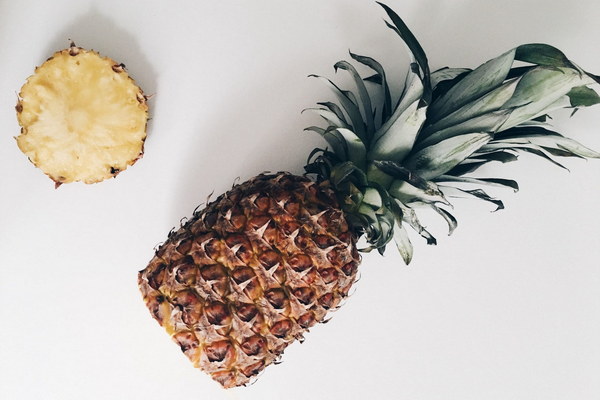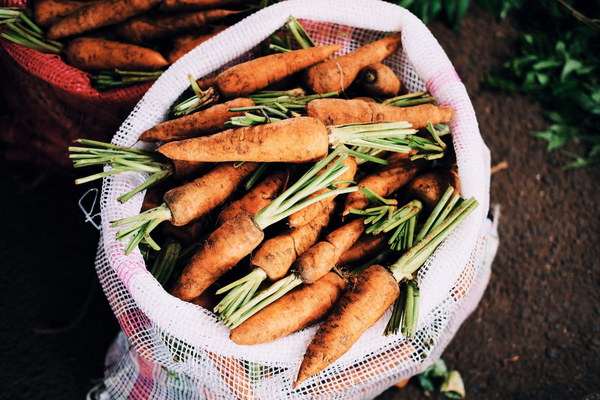Natural Liver Support and Wind Calming Exploring Traditional Chinese Herbs for Wellness
In the realm of traditional Chinese medicine, the concept of balancing the body's internal systems is paramount. One such balance involves nurturing the liver and calming the wind, which are key principles in the treatment of various health conditions. This article delves into the world of traditional Chinese herbs known for their liver-nurturing and wind-calming properties, offering insights into their usage, benefits, and potential applications.
The Liver: The Body's Emperor
In traditional Chinese medicine, the liver is considered the emperor of the body, responsible for governing emotions, metabolism, and the smooth flow of blood and Qi (vital energy). When the liver is healthy, it can effectively regulate other organs, ensuring overall well-being. However, stress, poor diet, and environmental factors can lead to liver dysfunction, resulting in conditions like irritability, mood swings, and pain.
Wind Calming: A Key to Health
The concept of wind in Chinese medicine refers to an imbalance of Qi that can manifest as various symptoms, including pain, stiffness, and spasms. Wind-related disorders are often characterized by their migratory nature and can affect the muscles, joints, and even the mind. Calming the wind is essential for alleviating these symptoms and restoring balance to the body.
Herbal Remedies for Liver Support and Wind Calming
Several traditional Chinese herbs have been used for centuries to support liver function and calm the wind. Here are some of the most notable ones:
1. Scutellaria baicalensis (Baical Skullcap)
Scutellaria baicalensis is a well-known herb used to nourish the liver and clear heat. It is particularly effective in treating conditions like hepatitis, jaundice, and stress-related liver dysfunction. Additionally, it possesses wind-calming properties, making it a valuable herb for those suffering from migraines, joint pain, and other wind-related conditions.

2. Bupleurum chinense (Chinese Thorowax)
Bupleurum chinense is another liver-nurturing herb known for its wind-calming effects. It is commonly used to treat liver Qi stagnation, which can lead to conditions such as irritable bowel syndrome, menstrual cramps, and emotional disturbances. Bupleurum chinense is also used to support the immune system and improve overall liver health.
3. Chrysanthemum morifolium (Silver Blossom)
Chrysanthemum morifolium is a cooling herb that is excellent for calming the liver and reducing eye strain. It is often used in combination with other liver-nurturing herbs to treat conditions like hypertension, eye fatigue, and headaches. Its wind-calming properties make it beneficial for those suffering from migraines and tension-type headaches.
4. Peony lactiflora (White Peony)
Peony lactiflora is a potent liver-nurturing herb with strong wind-calming properties. It is commonly used to treat liver Qi stagnation, resulting in conditions such as abdominal pain, bloating, and emotional disturbances. Peony lactiflora is also used to alleviate menstrual cramps and promote a healthy menstrual cycle.
5. Angelica sinensis (Dang Gui)
Angelica sinensis, also known as Dong Quai, is a well-known blood-nourishing herb that can also support liver function and calm the wind. It is often used in combination with other herbs to treat conditions such as menopausal symptoms, premenstrual syndrome, and chronic fatigue.
Combining Herbs for Optimal Results
While individual herbs can offer significant benefits, combining them can often lead to more effective and comprehensive treatment. A trained practitioner of traditional Chinese medicine can tailor a formula to your specific needs, ensuring that the right combination of herbs is used to support your liver and calm the wind.
Conclusion
Traditional Chinese herbs offer a natural and holistic approach to nurturing the liver and calming the wind, addressing the root causes of various health conditions. By exploring the benefits of these ancient remedies, individuals can take a proactive step towards improving their overall well-being and enjoying a healthier, happier life.









